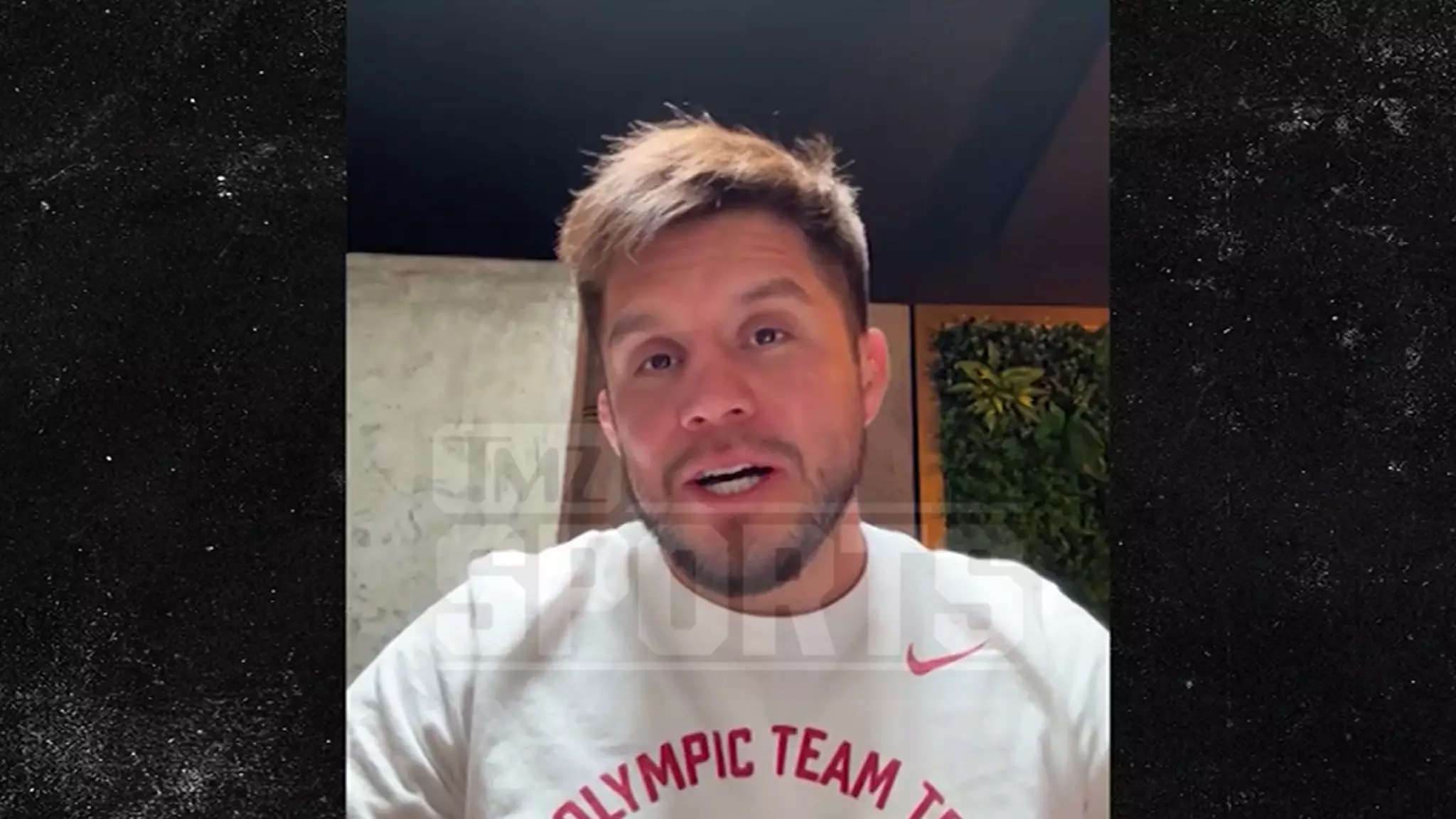In the world of sports, athletes often become celebrities, idolized by fans for their performances in and out of the arena. However, sometimes they go beyond their athletic prowess and step into the realm of everyday heroism. Henry Cejudo, an Olympic gold medalist and UFC champion, found himself in such a situation during a chaotic incident that unfolded in his neighborhood. On a seemingly ordinary Friday night, Cejudo witnessed a life-threatening scenario that would test not just his physical abilities, but also his character and decision-making under pressure.
As Cejudo recounts the events, the atmosphere was charged with tension when a vehicle recklessly barreled down his street at an alarming speed of approximately 80 MPH. This reckless behavior escalated into a catastrophic scene: the car became airborne after colliding with a sprinkler system, ultimately crashing into a nearby house. Cejudo’s role as a responsible neighbor came to the forefront when he instinctively assessed the danger to himself and others involved, acknowledging the possibility that the occupants of the vehicle could be armed.
Deciding to Act
In the heat of the moment, many individuals may hesitate when confronted with violence or the unknown. However, Cejudo chose to act, epitomizing the essence of bravery. As the occupants of the crashed vehicle attempted to flee the scene, Cejudo weighed his options. Rather than letting panic dictate his actions, he strategically intervened when one of the suspects assaulted a neighbor who confronted them. Utilizing his training and physical advantage, he subdued the aggressor, demonstrating not only courage but a sense of moral responsibility to protect his community.
What stood out during Cejudo’s intervention was his immediate assessment of the situation. Instead of escalating violence, he sought to neutralize the threat while prioritizing safety for both his neighbors and the suspect. His actions could have easily led to a more violent confrontation; however, his logical approach avoided further chaos and even potential loss of life. Cejudo openly acknowledged that if he hadn’t stepped in, the precarious situation could have quickly turned fatal.
Reflecting on the Aftermath
Following the incident, Cejudo expressed a profound sense of reflection and responsibility. He understood that his actions were not merely a momentary display of bravado but a critical intervention that could have lasting implications. While sympathy for the suspect, identified as 22-year-old Angel Cota, might seem misplaced given his reckless actions, Cejudo demonstrated a balanced perspective—hoping that Cota would learn from the experience. The athlete remarked that the best lesson often comes through consequences, as Cota now faces multiple charges, including DUI and assault.
In an era when many may look past personal responsibility in our increasingly chaotic world, Cejudo’s heroic actions remind us that individuals can still make choices that prioritize the well-being of others. His story is one of resilience, courage, and the embodiment of the belief that heroes are not simply born—they are forged in the fires of crisis. It highlights the importance of community responsibility and the need to stand up, regardless of personal risk, when safety is at stake, proving that true valor extends far beyond the physical realm into the heart of human decency.

